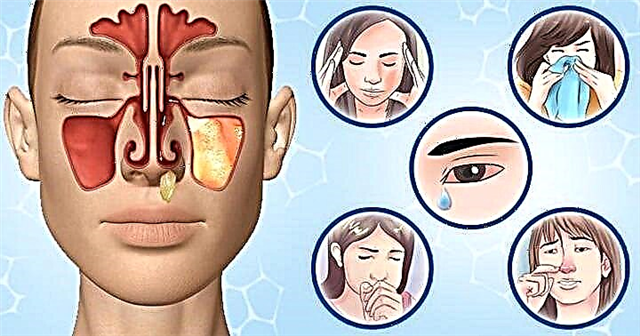 How to treat chronic rhinitis in adults?
How to treat chronic rhinitis in adults?
Traditional medicine is able to offer at least a hundred different drugs to stop rhinorrhea. But in order to cure a respiratory disease, you need to accurately establish the true cause of its development. Rhinitis can be triggered by physiological disorders, curvature of the nasal septum, infectious or allergic agents. In all cases, therapy will consist of taking medications, but they will all be different.
Features of therapy
In most cases, a lingering rhinitis occurs against the background of inadequate or delayed treatment of infectious acute rhinitis. The provocateurs of sluggish inflammation are mainly microbes - streptococci, meningococci, staphylococci, etc. Depending on the characteristics of changes in the morphological structure of the mucous membrane, the following types of lingering rhinitis are distinguished:
- atrophic - characterized by thinning of the walls of the nasal mucosa and the formation of crusts on its surface;
- hypertrophic - characterized by thickening of the nasal mucosa and the formation of benign tumors (polyps).
How to get rid of a chronic rhinitis? The principles of therapy are determined by the form of the disease and the nature of changes in the structure of the nasopharyngeal mucosa. As a rule, the treatment of atrophic rhinitis consists in the use of symptomatic drugs. For these purposes, nasal moisturizing solutions, nasal oil drops and gels are used.
Only a specialist can accurately determine the type of rhinoscopy after a rhinoscopy and a histological examination of tissue samples.
In the early stages of development, hypertrophic rhinitis is tried to be treated with nasal corticosteroids. But in most cases, it is still not possible to avoid surgical intervention. During the operation, the surgeon removes overgrown tissues and formed polyps from the nasopharynx. To minimize surgical intervention and the likelihood of complications, radio wave and ultrasound methods, as well as cryodestruction, are used for tissue excision.
Antibiotics
How to treat a chronic rhinitis? As already mentioned, indolent rhinitis is provoked mainly by bacteria, therefore, antibiotics should be used to treat it. Systemic drugs contribute to the destruction of infectious agents directly, therefore they are included in the therapy regimen in the first place.
Due to the fact that in 93% of cases, inflammation of the upper airways is provoked by staphylococci and streptococci, the following remedies for chronic rhinitis are used for treatment:
- Augmentin; "
- Amoxiclav ";
- Cefadroxil;
- "Ampicillin";
- Erythromycin.
The dosage and duration of drug administration can only be determined by the attending physician.
If impurities of pus are found in the nasal mucus, this does not mean that any of the above means can be used to treat the disease. Both microbial and mixed flora can provoke inflammation.
It is possible to determine the causative agent of the infection only after receiving the results of the bacterial culture.
Effective nasal drops
Chronic rhinitis nasal drops are second-line drugs that are almost always included in the treatment regimen. However, most of them are aimed at eliminating the symptoms, rather than the causes of rhinorrhea. Therefore, they are used in parallel when undergoing antibiotic therapy.
There are at least 10 types of nasal products, but only 2/3 of them can be used to treat protracted rhinitis:
| Drop type | Pharmacodynamics | Name |
|---|---|---|
| vasoconstrictor |
| reduce swelling and inhibit the production of nasal secretions |
| antibacterial |
| destroy germs and reduce inflammation |
| moisturizing (isotonic solutions) |
| prevent the nasopharynx from drying out and restore mucociliary clearance (the process of cleansing the mucous membrane from infectious agents) |
| homeopathic |
| stimulate local immunity and prevent the development of pathogens in the mucous membrane |
| hormonal |
| eliminate inflammation and accelerate mucosal healing |
After instilling antibacterial drops, hormonal agents can be used no earlier than 1 hour later.
According to doctors, it is better not to use vasoconstrictors if possible. Yes, they quickly stop the manifestations of rhinorrhea, but they contain components that irritate the mucous membrane. Therefore, too frequent use of drops can cause the development of a side disease - medication rhinitis.
Bacterial vaccines
Sometimes a chronic runny nose can be cured with bacterial vaccines, which come in the form of regular nasal drops. Despite the fact that they do not need to be injected subcutaneously or intramuscularly, the active components of the drugs are quickly absorbed into the systemic circulation and begin to act. What are bacterial vaccines?
The bacterial vaccine is a nasal agent that contains bacterial lysates. They contain about 19 different inactivated microbes, which most often cause the development of inflammation in the nasal cavity. The introduction of a small amount of weakened pathogens into the body stimulates the production of immune cells. This increases the specific immunity and resistance of the body to infection.
IRS-19 is the most popular remedy for chronic rhinitis. The dispenser nasal spray is convenient to use even outside the home. The systematic use of the drug helps to eliminate sluggish inflammation in the airways, as well as prevent relapses of respiratory disease.
Colloidal silver preparations
Colloidal silver is small particles of silver dispersed in a liquid. This solution has a pronounced anti-inflammatory and antiseptic effect. Regular treatment of the nasal passages with drugs based on colloidal silver helps prevent the destruction of the mucous membrane and, accordingly, the development of pathogenic microbes.
The most famous drugs include Collargol and Protargol. According to ENT doctors, they can be easily used instead of antibacterial nasal drops in the treatment of bacterial and lingering rhinitis. The components of the funds are almost not absorbed into the bloodstream, therefore they do not create a load on the kidneys and liver.
It should be understood that it is impossible to cure a chronic rhinitis with the help of colloidal silver, but it is easy to prevent the spread of infection and foci of inflammation. For this reason, they are only used as an adjunct to mainstream antimicrobial therapy.
Nasal Irrigation Medications
Irrigation therapy, i.e.nasal lavage is one of the most effective and versatile methods of dealing with rhinitis of any etiology. Systematic cleansing of the nasal sinuses and concha from purulent exudate and infectious agents allows you to increase local immunity, prevent the growth of bacteria and destruction of soft tissues.
For the convenience of the sanitizing procedure, it is recommended to arm yourself with a small syringe with a rubberized nose or a syringe without a metal needle. In the presence of special teapots-irrigators, the technique of the procedure is simplified as much as possible. To prevent medication from entering the auditory tube, the head must be tilted to the side and fluid is poured into the upper nostril. If the procedure is performed correctly, part of the solution should pour out through the second nostril, and part through the mouth.
It is advisable to treat chronic rhinitis with drugs based on isotonic solutions. They contain a small but sufficient amount of salt, which is necessary to liquefy and remove mucus from the paranasal sinuses and nasal passages. The best medicines for nasopharyngeal irrigation include:
- Dolphin;
- Humer;
- Physiomer.
After the procedure, it is undesirable to leave the house for 30-50 minutes.
Treatment of vasomotor rhinitis
Vasomotor rhinitis is a disease that occurs against the background of a violation of neuro-reflex mechanisms and, accordingly, a violent reaction of the mucous membrane to pathological changes in the body. Rhinorrhea can be provoked by frosty air, strong odors and dust. The activity of the mucus-producing goblet cells only increases over time. Therefore, it is not always possible to stop the manifestations of vasomotor rhinitis even with the help of vasoconstrictor drops.
 How is chronic rhinitis treated? As a rule, symptomatic drugs are included in the therapy regimen. In particular, sympathomimetic drugs stimulate the contraction of blood vessels, thereby inhibiting the secretion of nasal mucus. Typically, the following are used to treat protracted vasomotor rhinitis:
How is chronic rhinitis treated? As a rule, symptomatic drugs are included in the therapy regimen. In particular, sympathomimetic drugs stimulate the contraction of blood vessels, thereby inhibiting the secretion of nasal mucus. Typically, the following are used to treat protracted vasomotor rhinitis:
- "Ephedrine";
- Sanorin;
- "Nazol";
- Xymelin;
- "Naphtizin".
The above drugs have pronounced adrenomimetic properties. What does it mean? They contain substances that provoke peripheral vasoconstriction and, as a result, less intense production of nasal mucus.
Treatment of protracted allergic rhinitis
Quite often, the cause of the development of a sluggish rhinitis is an allergic reaction. Unbeknownst to them, many people continue to stubbornly treat antiviral and antimicrobial drugs. However, they do not in any way affect the progression of allergies and the ability of allergens to penetrate deep into the nasal mucosa.
Most often, household, plant and drug allergens act as provocateurs of inflammation in the nasopharynx. To be sure to get rid of rhinorrhea, it is advisable to identify and limit contact with a causal allergen. To do this, you need to be examined by a doctor and make special allergy tests.
After eliminating the cause of inflammation of the nasopharynx, the doctor will draw up approximately the following treatment regimen:
- antihistamines nasal agents - "Tizin Allergy", "Allergodil";
- antiallergic systemic drugs - "Erius", "Claritin";
- stabilizers of membranes of mast cells (cromones) - "Kromoglin", "Kromohexal";
- intranasal corticosteroids - "Fluticasone", "Aldecin".
It should be understood that the above drugs will not in any way affect the mechanism for the development of an allergic reaction. But if provoking factors are eliminated, they will help to normalize the work of the nasopharynx and eliminate inflammation. rusind.ru Is it possible to get rid of a lingering allergic rhinitis forever?
To prevent the development of allergies, the patient needs to undergo special hyposensitizing therapy. It consists in the introduction of negligible doses of allergens into the body, followed by a gradual increase in dosage. As practice shows, this method of treatment makes it possible to increase the body's resistance to the action of certain irritating substances. Thanks to this, the allergy either completely disappears or proceeds with less severity of symptoms.



